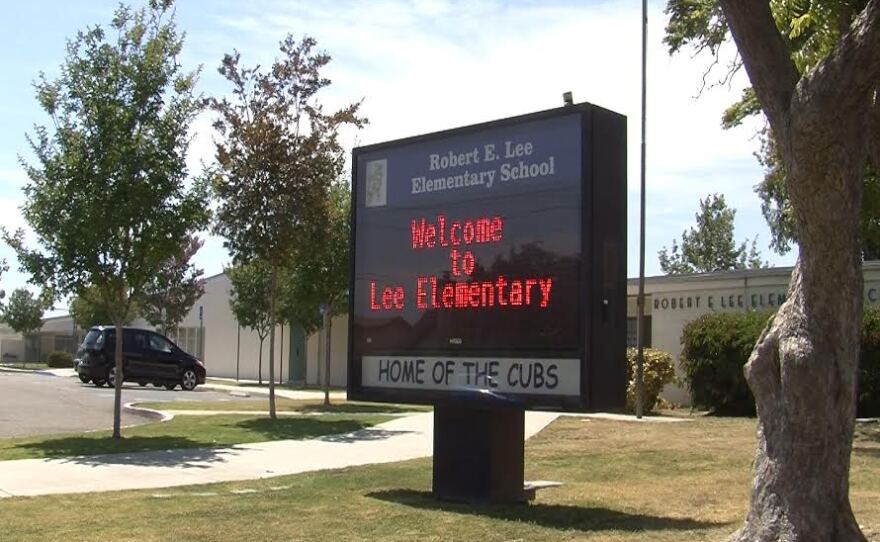The school district did not immediately respond to a request for comment on the issue.
Assemblywoman Lorena Gonzalez, D-San Diego, sent a letter to Superintendent Cindy Marten that referred to the shooting deaths of the pastor and eight parishioners of a historic black church in Charleston, South Carolina.
The attack is being investigated as a hate crime. The 21-year-old accused gunman, who is white, had posed with a Confederate flag in photos posted online.
South Carolina's governor has since called for the Confederate flag to be removed from the statehouse.
"The flag in particular, and anyone associated with this army, in general, have been associated with intolerance, racism and hate, none of which have a place in our schools," Gonzalez wrote. "It is also important to note that the area in which the elementary school is located is truly representative of South San Diego — a vibrant, multiethnic community with a strong African-American presence that deserves a school named after someone we can all admire," her letter says. "Robert E. Lee is not that person."
The Confederate Civil War general left a mixed legacy on race and slavery.
In an 1856 letter responding to a speech by President Franklin Pierce, he called the institution of slavery "a moral and political evil." In the same letter, however, he wrote that slaves were "immeasurably better off here than in Africa, morally, physically, and socially," and were going through a "painful discipline" necessary for "further instruction as a race."
Historian Elizabeth Brown Pryor, who went through a cache of Lee's papers discovered in 2002 in a Virginia bank, told US News & World Report that Lee owned slaves that were inherited by his wife, and that he kept them working five years after they expected to be freed.






